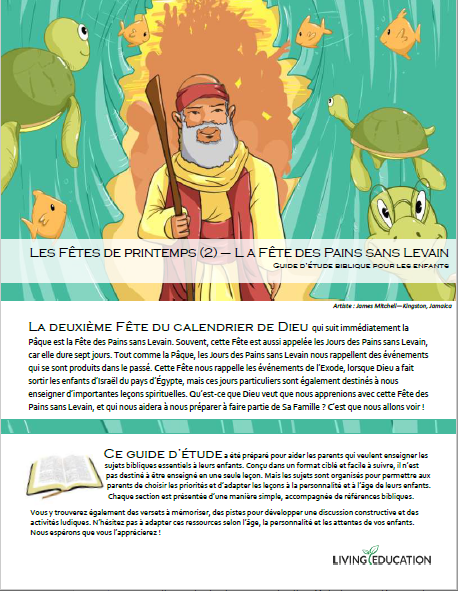Digging Deeper: Jesus Stopped at a Comma
Author: Mr. Kenneth Frank | Faculty in Theology, Living Education
Estimated Reading time: 8 min.
Did you know that when Jesus read a passage of Isaiah during a synagogue service He stopped his reading at a comma?
This was a most unusual preaching strategy but it was done deliberately. My last Digging Deeper article entitled “Jesus’ Sermon at His Hometown Synagogue” outlined the liturgy and custom of the first-century Jewish synagogue. In it, I explained that Jesus was recognized as a member of His Nazareth synagogue and was invited by custom to read a portion of either the Law or the Prophets. Jesus may have deliberately chosen the scroll of Isaiah for this sermon to His fellow worshipers. However, what He read and pointedly commented upon caused them to rise up and threaten His life.
Luke alone records this incident in Luke 4:16-30. Jesus quoted two passages from Isaiah He was beginning to fulfill: Isaiah 61:1-2 and Isaiah 58:6. Combining two texts with a similar theme was a common practice called a gezerah shava. If you read Isaiah’s original version, you will notice some rewording of the text in Luke’s account. This was common practice throughout our New Testament. God, the Author and Chief Editor of the Bible, is at liberty to revise and rephrase His word as necessary depending on the context in which it is cited.
Jesus First Came as a Prophet
When Jesus proclaimed that the Spirit was upon Him, He meant that he was moved to do some supernatural work. In Luke 4:18 He explained He was anointed by the Spirit, as Luke later explained in Acts 10:38, that authorized Him to preach. The Old Testament ceremony of anointing with oil inaugurated men into the offices of priest, prophet, or king. Jesus first came as the Prophet (Matthew 21:11; John 7:40), today He is our High Priest in heaven, and He will return as our King. He holds all three offices at once.
Jesus explained this anointing enabled Him to preach the gospel to the poor. He was a master preacher and teacher. One matter Luke emphasized about Jesus’ ministry was His concern for those materially poor. They were often at the mercy of unscrupulous officials and businessmen. It was generally thought that their suffering was due to God’s curse and was their fault. By contrast, those who relieved the poor were considered especially righteous since almsgiving was synonymous with righteousness in the minds of many at the time.
Jesus then proclaimed He was sent to heal the brokenhearted – those who were in despair of heart including those who mourn over their sins leading to repentance. He continued His sermon stating He came to preach deliverance to the captives – i.e., the forgiveness of sins and remission of its penalty. Those who are held in Satan’s snare as his captives in body, mind, or spirit Jesus will deliver.
Jesus added that He had come to recover sight to the blind – including those spiritually blind to God’s truth. During His ministry, Jesus healed many who were physically blind. He next declared that He came to set at liberty those who are bruised – i.e., oppressed, broken people. Jesus came to free people from heavy burdens of sin and oppressive rabbinical restrictions.
Jesus knew what it was like to be poor, brokenhearted, and bruised (Isaiah 53:3-5). The phrase “to set at liberty them that are bruised” in Luke 4:18 was Jesus’ insertion of a paraphrase from Isaiah 58:6. He was announcing a time when salvation was available to His audiences. The final phrase of Isaiah 61:2 states that throughout His ministry He came to comfort all that mourn: those who mourn over loss or sin. He still does today!
Stopping at a comma
In Luke 4:19, Jesus quoted only part of Isaiah 61:2. Notice the complete verse: Isaiah 61:2 KJV “To proclaim the acceptable year of the LORD, and the day of vengeance of our God; to comfort all that mourn.” “The acceptable year of the Lord” sometimes refers to the Jubilee year of Leviticus 25:8-17. However, Jesus applied it to His ministry then. He offered liberation from sin and its consequences. Those who accepted His salvation offer became His disciples.
As He quoted Isaiah 61:2 He stopped at the first comma (in the English Bible) and omitted “the day of vengeance of our God” and the rest of that verse (Luke 4:19). His reason seems to have been that the day of vengeance of our God is reserved for His second coming when He returns as conquering King and administers vengeance (justice) on those who willfully oppose Him.
Many Jews at the time believed that salvation was for them a matter of nationality rather than of submission to God. They considered vengeance and retribution to be reserved for the Gentiles. Some of the Jewish sects believed that Messiah would return as a powerful, conquering prince at the head of a mighty army to vanquish their enemies. When Jesus came instead as a suffering Servant Messiah who died for human sin, they rejected Him because He did not meet their messianic expectations. Their pride, prejudice, and preconceived opinion blinded them to their own spiritual need for repentance. What follows in this story is the result of this attitude.
Scripture fulfilled in a Man from Nazareth
In Luke 4:20 Jesus ended His reading, rolled up the scroll of Isaiah, and handed it back to the chazzan so He could sit down, as was customary, to deliver a sermon about these passages. The eyes of the congregation were fixed upon Him. There was an atmosphere of suspense building as they wondered what He would say next. He proclaimed that these texts were being fulfilled in their hearing (Luke 4:21). By contrast, they expected these passages to be fulfilled in a coming messianic age. Jesus said this phase of His ministry had already begun and they were being given an offer of repentance and discipleship.
The audience wondered at such gracious words coming from one they had known since He was a boy. “Isn’t this Joseph’s son?”, they asked (Luke 4:22). “How could He be the Messiah?” Rather than respond favorably to His offer, in Luke 4:23 Jesus predicted they would recite to Him a proverb that questions a person’s power and authority: “Physician, heal thyself.” Instead of responding to His offer, they asked Him to perform a miracle such as those they had probably heard about from His earlier ministry in Judea and Capernaum. By this point, Jesus had already turned water into wine and healed the nobleman’s son. Out of mere curiosity, they wanted to see a miracle but not transform their lives through genuine spiritual responsiveness.
Not accepted at home
Jesus then explained that prophets are seldom fully trusted back home (Luke 4:24). Jesus recited a proverbial expression that placed Him in the long line of prophets who were rejected by their people. What led to their rejecting Him was His noting examples of two Old Testament prophets, Elijah and Elisha, who performed miracles for Gentiles during an age of Israelite apostasy (Luke 4:25-27).
This was more than they could stand so they arose in wrath (Luke 4:28). Their rage had been building as they sat listening to Him but now it boiled over. They were not slow to see how Jesus applied these Old Testament stories to them. He inferred they were just as apostate as Israelites in the time of Elijah and Elisha. Instead of accepting the message to repent of their sins, they chose to destroy the messenger. Familiarity had bred contempt for one of their own.
To accept His words meant they would have to accept that God offered salvation to Gentiles whom they looked down upon as “dogs.” They were unwilling to humble their hearts. Their fierce, nationalistic pride and bigotry resented the thought of God’s blessing faith-filled Gentiles in the time of Elijah and Elisha. In effect, Jesus had compared his townsfolk to their unbelieving ancestors. Jesus even gave them another opportunity about a year later but instead they were offended in Him. As a result, He did not work many mighty miracles in his hometown (Matthew 13:53-58; Mark 6:5). At the time, even His siblings did not believe in Him (John 7:5).
In Luke 4:29, these congregants led Him to the brow of a hill overlooking Nazareth, intending to cast Him down headfirst and then stone Him to death for blasphemy. This was contrary to Jewish custom that forbad execution without trial and forbad it being conducted on the Sabbath. Not only that, but Roman law required the governor’s permission before executing one of their own. They were acting like a lynch mob. In Luke 4:30-32, Jesus miraculously passed through their midst and continued His ministry in Capernaum. His time of sacrificial death had not yet come (John 7:30). Many elsewhere became His disciples. Jesus lived this proverbial expression: “A prophet is not without honour, save in his own country, and in his own house” (Matthew 13:57 KJV).

Kenneth Frank was born and raised in New Jersey, USA, and attended Ambassador College, graduating in 1973. He served in the Canadian ministry from 1973-1999, after which he returned to the USA to pastor churches in Maryland, Virginia, and North Carolina for 15 years. Having earned a BA degree from Ambassador College he later earned a MA degree from Grand Canyon University before being assigned to the Charlotte office to teach at Living University, now Living Education. Currently, he teaches the Survey of the Bible course to the on-campus students and writes the Digging Deeper column for our online Bible study program. He is married, has four children, and seven grandchildren.




